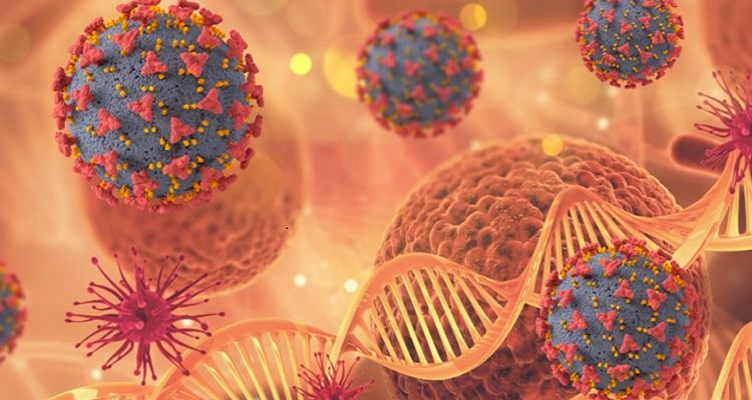



Scientists have made tremendous advances at Argonne National Laboratory, Illinois. The institution has created new research methods incorporating artificial intelligence, physics-based drug docking, and molecular dynamics simulations to optimize one of the most promising molecules to study in the lab.
Building infrastructure and algorithms that can associate AI and machine-learning tools would bring valuable assets. These can, therefore, reshape preceding issues into problems easily solved with data and machine learning.
The project utilizes several of the most powerful software to operate millions of simulations to train the machine learning system. After training, it picks up the determinant factors that might make a specific molecule a good candidate and then searches for the most promising outcomes.
The team started by familiarizing with a smaller COVID-19’s proteins, moving into the main protease, and finally jumping into the large challenging structures to compute.
These are not the only attempts to combine the machine and deep learning during the COVID-19 drug hassle. However, this particular group stands out by having AI simulation integrates into iteration and not operated post-simulation.(1)
Designed in collaboration with NIH data scientists, the models leveraged data from locations with high rates of COVID-19 infections, including Italy, China, Japan, and the US.
Utilizing chest CT scans data, NVIDIA Corporation has launched a set of AI prototypes that could aid researchers in identifying and studying COVID-19 patients.
Scientists developed the AI models using the NVIDIA Clara program framework for medical imaging. The structure contains domain-specific AI training and advanced workflow tools that quickly led to the creation of the NIH and NVIDIA models.
The idea aims to extend this CT-based model to x-ray imaging to allow local adoption, avoiding sharing patient data, and safeguarding patient privacy.(2)
Multiple AI companies are creating enormous data platforms with the sole purpose of facilitating research projects, in particular COVID-19 related ones. Samma Technologies Inc. contributes with readily available big sets of information, hence helping develop new clinical trials. In May 2020, they launched the new COVID-19 Command Center, a platform with more than 8,000 patients’ clinical trials data in the United States, China, and South Korea. This project will ease the design and analysis of new clinical trials to help speed up preventive strategies and treatment therapies for COVID-19 infections.(3)


A British hospital has kickoff a virtual assistant, which can help employees remain updated during the COVID-19 pandemic.
In collaboration with IBM, Royal Marsden has developed “Maisie,” the virtual assistant based on IBM Watson AI. Maisie uses IBM Watson’s native communication system to interact with the hospital workforce. The AI offers data on the newest guidelines and medical information about the virus. Designed to create safer medical practices, Maisie facilitates COVID-19 testing and even arranges childcare. If the situation is out of Maisie’s scope, this virtual assistant will redirect the user to a human representative who can further help.(4)
Motivated by the COVID-19 contingency and the vitality of social distance, Biofourmis has created a remote monitor for individuals affected by this virus. It is worth mentioning that Biofourmis has previously developed this type of detector for pain conditions, heart failure, and other oncologic and cardio-metabolic disorders.(1)
Nowadays, Biofourmis utilizes the Biovitals Sentinel technology to monitor patients with established or possible infections worldwide. Physiological data passes through an AI-powered algorithm to triage for possible patient deterioration. If it finds decompensation, a special treatment algorithm informs the clinician of the best next step, preventing unnecessary emergency department visits.(5)


Now, more than ever, healthcare systems are searching for AI algorithms to ease the clinical decision-making process further. University of California San Diego (UCSD) Health has started an initiative. Their team and a cloud service contributor have developed a new AI algorithm applied to more than 2,000 chest X-ray images. This tool helps clinical staff recognize early signs of pneumonia in COVID-19 patients, which is crucial to sort out who should be admitted or stay admitted longer.
The algorithm training phase included 22,000 radiologists’ annotations. The algorithm overlays color-coded maps on X-ray pictures to show pneumonia feasibility.(6)
A computer science professor at Heriot-Watt University has created an intelligent interactive system that successfully engages in hospital disinfection while adaptively interacting with humans. This system blends several interaction modalities, such as speech, graphics, gesture, vision, and natural language processing. Autonomous robots can assist in disinfecting hospitals, and AI tutors support parents with the burden of homeschooling. The professor also said, “AI companions” can aid with loneliness, particularly in elderly patients.(7)

An AI-based clinical data solution, Medial EarlySign, has introduced the new Back2Care platform. Four new bundles targeting clinical areas, prioritization, and readmissions are offered. These collections of collaborative AI-powered solutions use standard information to establish patients who will benefit from early intervention. The bundles this platform provides are:

BlueDot is a platform that evaluates relevant information about infectious illnesses, like COVID-19, to catch outbreaks, prevent dispersion and consequences of this virus using various datasets.
It employs natural language processing and machine learning to gather data from hundreds of thousands of authors. This data included statements from official public health organizations, digital media, global airline ticketing information, livestock health records, and community demographics. It can analyze tons of emerging publications every 15 minutes. From there, a group of physicians and computer programmers assess the AI outcomes, review them, and generate reports to follow further and predict the spread of this type of viruses.(9)
A pioneer in creating and implementing AI and machine learning, BenevolentAI aims to revolutionize the way drugs are discovered and developed. Baroness Joanna Shields, CEO of BenevolentAI, said, “In acknowledgment to the COVID-19 global health crisis, we turned our AI drug discovery and advancement platform toward comprehending the body’s reaction to this new infectious disease.” Along with their research, the company considers baricitinib as a promising candidate.
Last month, BenevolentAI launched a randomized-controlled trial on baricitinib to test whether the medication can prevent COVID-19 from infecting the lungs and decrease inflammatory injury. Additionally, they searched for ways to stop the cellular systems that the virus employs to contaminate human cells.(10)


PrecisionLife has developed a platform to genetically pinpoint patients at high risk of getting severe forms of infection from COVID-19.
Demographic characteristics, like age, sex, and the existence of several comorbidities, have already been established as significant variables to predict severe forms of COVID-19.
Nevertheless, after an investigation done with 929 COVID-19 patients from the United Kingdom, PrecisionLife established 68 genes associated with a higher probability of severe illness. This evaluation will help the early recognition of patients requiring exceptional treatment to improve results.(11)
An artificial intelligence device precisely predicted which patients recently infected with COVID-19 would arise with severe respiratory disease. The model, conducted by NYU Grossman School of Medicine and NYU Courant Institute of Mathematical Sciences, learns from historical information to anticipate who will develop severe respiratory distress syndrome, a severe outcome in COVID-19.
Based on data from two hospitals, results demonstrated characteristics on the initial appearance with COVID-19 that were most predictive of subsequent development of ARDS. The models that learned from historical inputs of patients achieved 70% to 80% accuracy in forecasting severe cases.(12)


A database of blood samples from 485 infected individuals is being studied in the area of Wuhan, China. This trial intended to determine critical predictive biomarkers of illness mortality. For this reason, machine learning tools chose three biomarkers that predicted the mortality of each patient more than ten days in advance with an accuracy greater than 90%: lactic dehydrogenase (LDH), lymphocyte count, and high-sensitivity C-reactive protein (hs-CRP).
Somewhat high levels of LDH alone seem to play a vital part in triaging cases that demand urgent medical attention. These LDH findings are consistent with ongoing medical knowledge that high LDH levels are linked with tissue breakdown in several diseases, such as pneumonia. This study introduces an operable and straightforward decision-making formula to quickly presage patients at the highest risk, prioritize them, and potentially downgrading the mortality rate.(13)
References